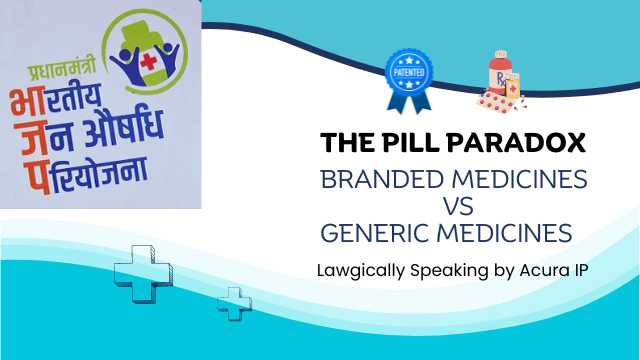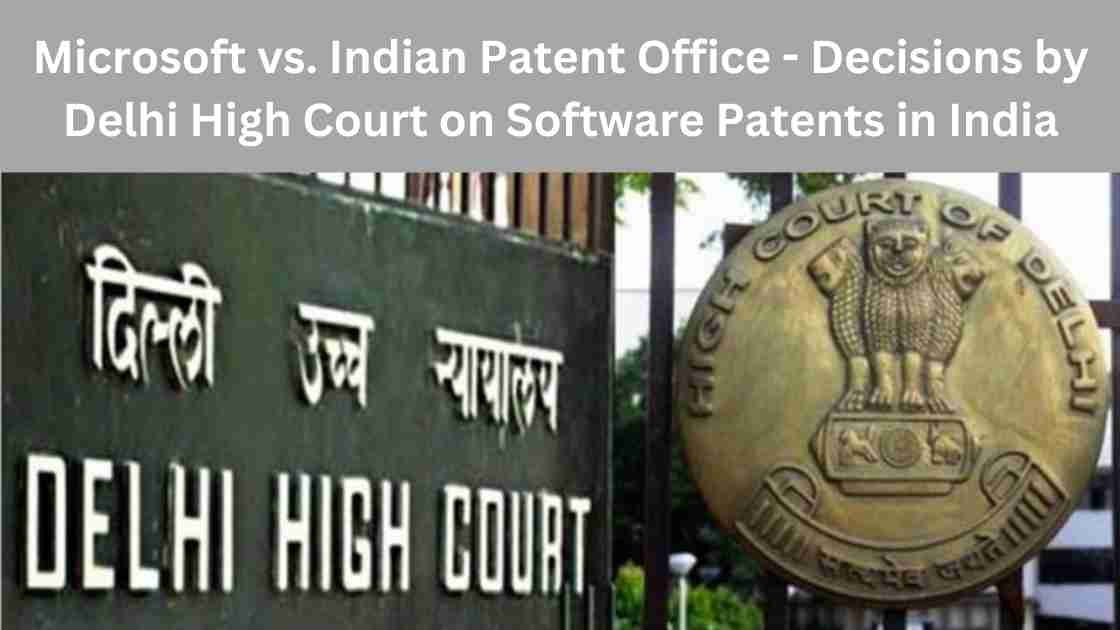
Branded Medicines vs. Generic Medicines: The Role of Patents
In the pharmaceutical industry, the distinction between branded and generic medicines is an essential one. Understanding this distinction is crucial not just for medical professionals and patients, but for legal practitioners who navigate the complex world of pharmaceutical patents. This article seeks to provide a clear overview of branded and generic medicines and the role played by patents in their development and distribution.
1. Branded Medicines: What are they?
Branded medicines, also known as innovator drugs or proprietary medicines, are developed by pharmaceutical companies after extensive research and clinical testing. Once a new medicine is created, the manufacturing company seeks approval from the relevant regulatory body (like the FDA in the United States) to sell the drug. Upon approval, the medicine is given a brand name under which it is marketed.
2. The Role of Patents
Patents play a central role in the world of branded medicines. A patent grants its holder exclusive rights to produce, sell, and use the invention (in this case, the medicine) for a certain period, typically 20 years from the date of filing. This exclusivity allows the inventing company to recoup its investments in research and development (often amounting to billions of dollars) by preventing other companies from selling the same drug during the patent’s lifespan.
3. Generic Medicines: A Brief Overview
Generic medicines are essentially copies of branded medicines but are sold under their chemical or generic name rather than a brand name. These drugs are equivalent in dose, strength, route of administration, quality, and intended use to their branded counterparts but are usually sold at a significantly lower price.
4. Why are Generic Medicines Cheaper?
Generic medicines are cheaper primarily because their manufacturers have not borne the substantial costs of researching and developing a new drug. Instead, they produce a drug that has already been shown to be safe and effective. However, before a generic drug is approved for sale, the manufacturer must prove to the regulatory authority that the generic is bioequivalent to the branded medicine, ensuring it provides the same therapeutic benefits.
5. When do Generic Medicines Come into the Market?
The introduction of generic medicines is directly tied to the patent lifecycle of the branded medicine. Once the patent for a branded medicine expires, other pharmaceutical companies are free to produce and sell generic versions of the drug. This competition typically results in a significant reduction in drug prices, making medicines more accessible to a larger segment of the population.
6. Legal Implications and the Role of Law Firms
Pharmaceutical patents often find themselves at the intersection of science, commerce, and law. Disputes often arise, especially when generic manufacturers challenge the validity of a branded medicine’s patent to bring their product to market sooner. Law firms specializing in intellectual property and patent law play a pivotal role in these disputes, guiding companies through patent applications, patent litigation, and other related legal challenges. The dynamic between branded and generic medicines is a crucial aspect of the modern pharmaceutical landscape. While branded medicines represent groundbreaking research and innovative treatments, generic medicines ensure that life-saving treatments become accessible to a wider population. The interplay of patents within this ecosystem ensures a balance between incentivizing innovation and promoting public health. It is, thus, imperative for legal professionals to remain abreast of evolving patent laws and the pharmaceutical industry to effectively serve their clients in this domain.

Recent FAQs Published by the Indian Patent Office on Form 27
The Indian Patent Office recently released a comprehensive FAQ document…

A Comprehensive Guide to Patent Searches: Types, Examples, and When to Use Them
Patent searches are a crucial aspect of the patenting process.…

Microsoft vs. Indian Patent Office – Decisions by Delhi High Court on Software Patents in India
The part of this series focuses on the…

Case in Point: Sun Pharma Ltd vs. DWD Pharma Ltd
Case in Point is a new series where…
Categories
Recent Discussions
Recent FAQs Published by the Indian Patent Office on Form 27
The Indian Patent Office recently released a comprehensive FAQ document regarding Form 27, aimed at clarifying the requirements and procedures for patentees and…
Recent Discussions
A Comprehensive Guide to Patent Searches: Types, Examples, and When to Use Them
Patent searches are a crucial aspect of the patenting process. Whether you're an inventor, entrepreneur, or a legal professional, understanding the different types…


